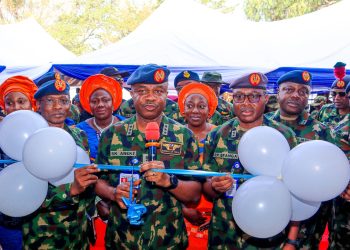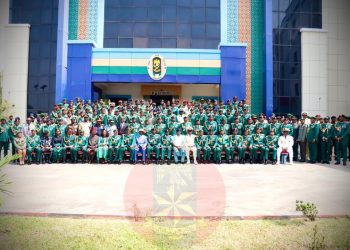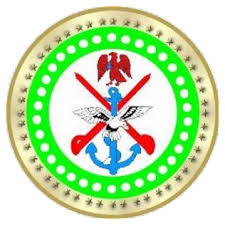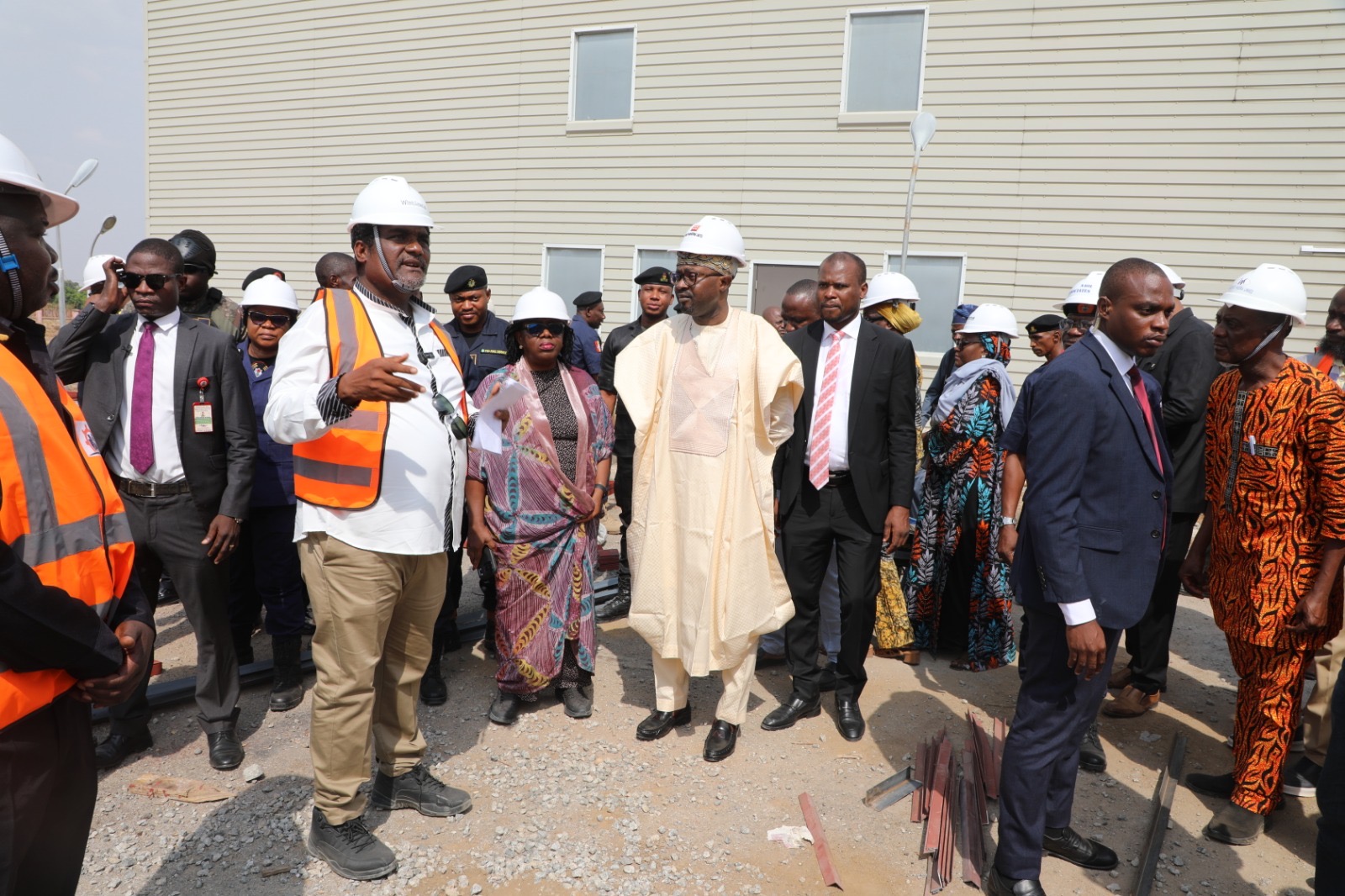By Nkechi Eze
The Honourable Minister of Defence, H. E. Mohammed Badaru Abubakar, CON, mni, has emphasized the critical importance of strategic defence management as a key driver in safeguarding Nigeria’s sovereignty, maintaining national peace, and facilitating sustainable socioeconomic development.
Speaking at the National Defence College Course 33 in Abuja, the Minister delivered a lecture titled “Strategic Defence Management in Nigeria: Ministry of Defence in Perspective.” The lecture provided a detailed overview of the Ministry’s central role in addressing Nigeria’s evolving security environment through institutional reforms, strategic foresight, and cross-sectoral collaboration.
In a statement signed by Mati Ali, the Minister’s Special Assistant on Media and Publicity, Badaru commended President Bola Ahmed Tinubu for making national security a top priority of his administration. He noted that the President’s emphasis on security development reflects a deep understanding of the intrinsic link between defence and national growth.
The Minister described Nigeria’s current security landscape as highly complex, involving a dynamic interplay between various actors including state forces, insurgents, civil society groups, the media, and foreign interests. He noted that these actors operate within a volatile regional and global context, making the role of the Ministry of Defence more critical than ever.
“With a population exceeding 200 million and an increasingly dynamic economy, Nigeria is facing a diverse array of security threats,” he said. These include insurgency in the North-East, banditry and communal violence in the North-West and North-Central, secessionist agitation and oil theft in the South, and maritime insecurity in the Gulf of Guinea. He also cited the destabilizing influence of regional insecurity in the Sahel and Nigeria’s leadership responsibilities within ECOWAS and the African Union as factors shaping national defence strategies.
Badaru praised the Tinubu administration’s recognition of the nexus between security and development, highlighting ongoing reforms focused on military modernization, capacity building, and investment in local defence manufacturing. He noted that the Ministry of Defence, as the central coordinating body for the Armed Forces, plays a pivotal role in the success of these reforms.
He outlined the Ministry’s core responsibilities, including the formulation and implementation of the National Defence Policy, maintaining the operational readiness of the Armed Forces, and coordinating strategic initiatives that integrate policy development, defence planning, and resource management.
“For strategic defence management to be effective, it must be grounded in forward-looking frameworks that are responsive to both national priorities and global realities,” the Minister stated.
He further reaffirmed the Ministry’s commitment to enhancing operational efficiency, strengthening transparency and accountability, and fostering partnerships across government and civil society. According to him, a whole-of-government and whole-of-society approach—combining military, economic, and diplomatic tools—is necessary to protect Nigeria’s territorial integrity and ensure the safety of its citizens.
In his remarks at the event, the Commandant of the National Defence College, Rear Admiral James Ohimai Okosun, expressed deep appreciation to the Minister for delivering a timely and insightful lecture. He described the presentation as crucial for shaping the perspectives of future military leaders and commended the Ministry’s ongoing reforms, which he said are setting new benchmarks in defence governance and institutional effectiveness.
















